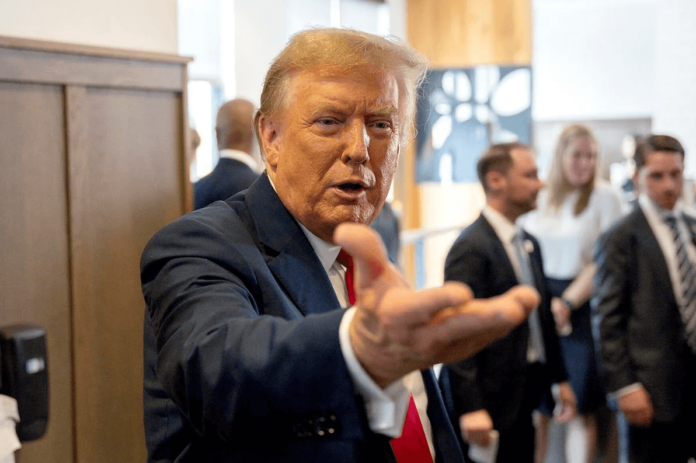U.S. District Judge Aileen Cannon’s decision to indefinitely delay former President Donald Trump’s trial over the mishandling of classified documents has sparked a wave of criticism and concern among legal experts and observers. The trial, centered on Trump’s alleged improper transfer of sensitive documents to his Mar-a-Lago estate, has been pushed back due to unresolved pretrial issues, casting doubts over the timing and fairness of the proceedings.
The case against Trump is significant: he is accused of taking thousands of government documents, including hundreds marked classified, from the White House. These documents reportedly ended up in various insecure locations around Mar-a-Lago, accessible to a myriad of guests. This serious breach of national security protocols should, under normal circumstances, prompt a swift and decisive legal response. However, Judge Cannon’s ruling has postponed the trial to a date beyond the foreseeable future, particularly concerning given the upcoming presidential election in which Trump is a candidate.
The rationale for the delay stems from complexities related to the Classified Information Procedures Act (CIPA), which governs how classified evidence is handled in court. While delays to address CIPA concerns are standard, the indefinite nature of this delay is not, leading many to speculate about the motivations behind Judge Cannon’s decision. Her ruling noted that setting a trial date prematurely could compromise the court’s duty to consider pre-trial motions fully and fairly.
Critics argue that Judge Cannon, appointed by Trump himself during his presidency, has shown an unusual level of leniency towards the former president, raising questions about impartiality. Legal professionals, including Ty Cobb, a former White House lawyer under Trump, have openly criticized Cannon’s handling of the case, citing “gross incompetence” and apparent bias. These critiques underscore a growing concern that the judge’s decisions may be unduly influenced by her connections to Trump.
The implications of this delay are profound. If the trial does not occur before the election, and should Trump win, he could appoint an attorney general who might dismiss the charges altogether, effectively nullifying any accountability for actions that potentially jeopardized national security. This scenario would not only have grave implications for justice but could also set a concerning precedent for the handling of classified information by public officials.
Given these stakes, some have suggested that DOJ special counsel Jack Smith should push for Judge Cannon’s removal from the case to preserve the trial’s integrity and ensure it proceeds without undue delay or interference. Richard Signorelli, a former assistant U.S. Attorney, argued on social media that the public deserves a “fair, speedy, and impartial trial,” suggesting that the current situation falls short of these standards.
As this legal drama unfolds, it becomes increasingly clear that the handling of Trump’s trial is more than a simple procedural matter—it is a test of the judicial system’s ability to uphold principles of justice evenly, without favor or bias, even when dealing with figures of immense political power. The outcome of this case could have lasting implications on public trust in the U.S. legal system and the principle that no one, not even a former president, is above the law.



